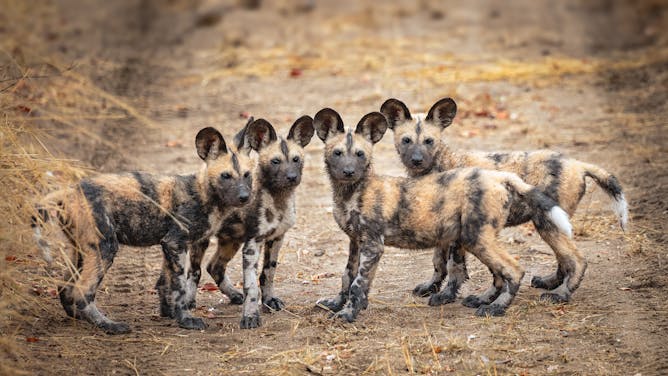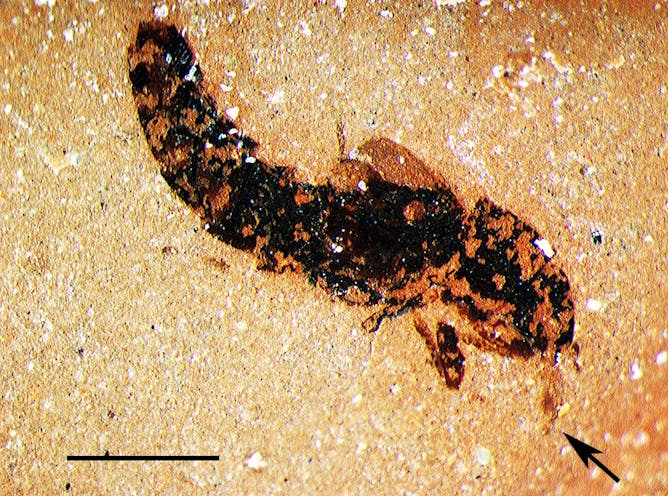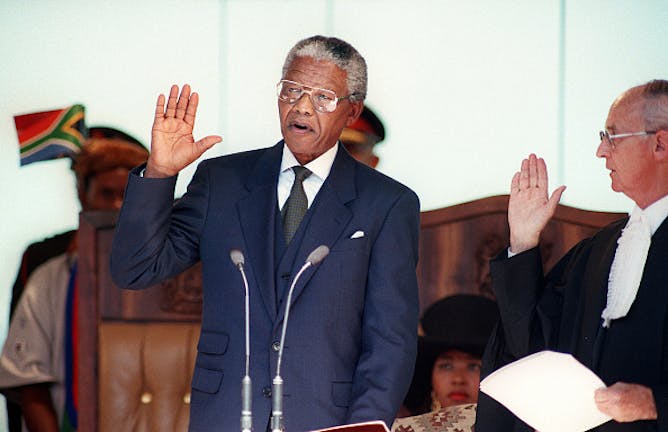|
There are only 550 African wild dogs left in South Africa. Being kept in reserves, with packs isolated from each other, has caused them to interbreed, lowering their resilience to disease. Only artificial breeding will save the species. Reproductive and molecular biologist Damien Paris is part of a team currently setting up the first ever African wild dog frozen sperm bank, which will allow genetically diverse dogs to continue breeding for another 100 years at least.
Rove beetles are a large group of insects found in many environments, and they do all sorts of useful jobs, like converting organic matter to nutrients. They’ve been around for millions of years, little changed in form – but until recently no rove beetle fossils had ever been found in Africa or in the southern hemisphere. Then Africa’s first black palaeoentomologist, Sandiso Mnguni, discovered two species in fossil material collected from Botswana’s Orapa diamond mine. He describes these exciting finds, which date back to around 90 million years ago, when they would have shared the planet with dinosaurs.
This year South Africa marks 30 years of freedom and democracy, following the end of the apartheid regime. We’ll be kicking off our coverage tomorrow, which includes a series of podcasts (here’s the trailer) that examine the country’s journey since 1994.
|

Damien Boyd Bertrand Paul Paris, James Cook University
The African wild dog has been left without habitat to naturally disperse and breed. Scientists will set up the first-ever sperm bank to inseminate wild dogs and ensure that the species survives.
|

Sandiso Mnguni, University of the Witwatersrand
This is one of the first fossil rove beetles ever discovered on the continent and in the southern hemisphere more broadly.
|

Thabo Leshilo, The Conversation
A lot of good has happened since apartheid ended in 1994. Sadly, 30 years on, the country is in a political and economic crisis. Many are questioning the choices of the past three decades.
|

Josh Opoku Brew, University of Pittsburgh
The viability of any music culture depends on the availability of musicians.
|

Inger Fabris-Rotelli, University of Pretoria; Ansie Smit, University of Pretoria; Danielle Jade Roberts, University of KwaZulu-Natal; Daniel Maposa, University of Limpopo; Fabio Mathias Correa, University of the Free State; Michael Johan von Maltitz, University of the Free State; Sonali Das, University of Pretoria
Fewer graduates means fewer data analysis experts to aid in knowledge creation and innovation.
|
From our international editions
|
-
Preminda Jacob, University of Maryland, Baltimore County
Ahead of elections in India, a series of films that promote the ruling party’s right-wing ideology are seeking to influence voters. An art historian explains how the trend started.
-
Ruolin Wu, University of Bristol
The origin date for flowers is a source of debate among scientists – but a new approach may help bring clarity to the question.
-
Jorge Heine, Boston University
The bombing of the Iranian consulate in Damascus and storming of Mexico’s embassy in Quito breaks with accepted diplomatic norms − and could spell trouble.
-
Nicola Thomas, London South Bank University
Kidney disease often doesn’t show up until the damage is quite extensive. So take care of your kidneys, starting today.
-
Clare McGlynn, Durham University
The invisible threat of deepfake porn now pervades the lives of women and girls
|
|